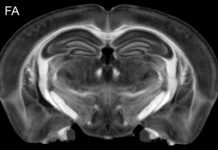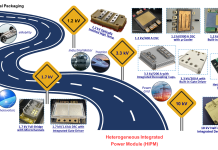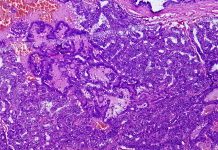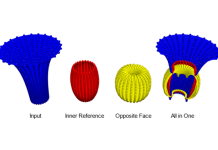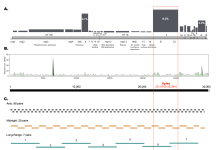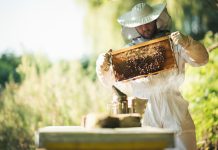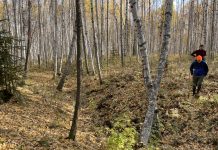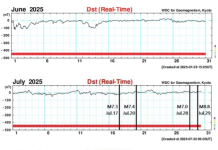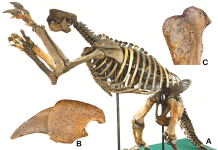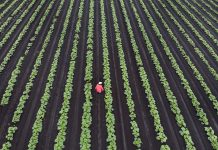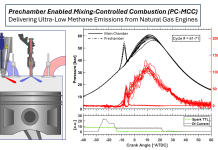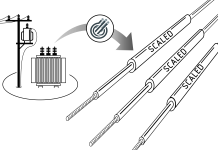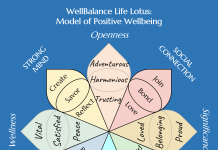Open Access Government produces compelling and informative news, publications, eBooks, and academic research articles for the public and private sector looking at health, diseases & conditions, workplace, research & innovation, digital transformation, government policy, environment, agriculture, energy, transport and more.
Home 2025
Archives
3D microscopic whole brain neurodegenerative MRI
This article by G. Allan Johnson, Ph.D., focuses on advanced MRI techniques for studying neurodegenerative diseases, exploring the challenges of screening therapies for conditions like Alzheimer’s and Parkinson’s, and highlighting the promising research conducted at Duke University.
Power electronic modules form the basis of grid modernization
H. Alan Mantooth, Distinguished Professor at the University of Arkansas, guides us through power electronic modules, which form the basis of grid modernization.
Cancer care through molecular diagnostics: Addressing papillary thyroid cancer
Oliver Bathe from the University of Calgary and Qualisure Diagnostics, walks us through addressing the surge in papillary thyroid cancer incidence by refining cancer care through molecular diagnostics.
Proceedings of the Libby, Montana asbestos education & outreach retreat
Jean C. Pfau discusses the history and health implications of the vermiculite mine in Libby, Montana, and the establishment of the Center for Asbestos-Related Disease (CARD), which offers vital clinical services for affected individuals. Additionally, a retreat in June 2025 allowed experts to share research findings on asbestos exposure.
Organic intelligence core technology (OICT) solves the core problem of AI/ML
Many businesses are growing sceptical of AI/ML because they fail to see strong returns or solid fundamentals. Inora Organic Intelligence Core Technology (OICT) changes that – built on a strong foundation, it delivers accuracy and sustainable ROI.
What can we learn from millions of viral genome sequences?
David Ussery and Pratul Agarwal, Professors in the Department of Physiological Sciences at Oklahoma State University, discuss their work using high-performance computing for the analysis of millions of viral genome sequences.
Honey production in Alberta: Grassroots extension services
Aleksandra Tymczak studies the beekeeping and honey industry, which is an established sector of Alberta’s agricultural system. In this article, she emphasizes the importance of knowledge within the industry and the growing capacity of grassroots extension services to both share and acquire knowledge.
Cryptic ground ice conditions in permafrost and northern agricultural expansion
Permafrost conditions are often heterogeneous and concealed beneath the surface, becoming evident only when thawing occurs. Melissa Ward Jones discusses these challenges and highlights a new publication that identifies ice wedges for the first time in the Yukon-Kuskokwim Delta region of Alaska.
Could the summer 2025 earthquake awakening be provoked by magnetic storms?
Dimitar Ouzounov (1,2) and Galina Khachikyan (3) expertly walk us through the strong earthquakes awakening in July and August of 2025, which geomagnetic storms could have provoked in June 2025.
Why aren’t schools teaching data science?
Nancy Butler Songer highlights the importance of data literacy skills for pre-university students. The Life Right Here and Everywhere Project aims to equip youth with essential data science skills, fostering confidence and addressing challenges in integrating data into lessons.
A gentle giant: Thomas Jefferson’s ground sloth
Professor Loren E. Babcock and Dr H. Gregory McDonald discuss the historical significance of palaeontology, focusing on key figures’ contributions to the field and their studies of the ground sloth, Megalonyx.
Navigating the consumer-food interface: A regulatory perspective on plant protein in Canada
Christopher P.F. Marinangeli, PhD, RD, is the Director of the Centre for Regulatory Research and Innovation at Protein Industries Canada. He discusses the consumer-food interface from a regulatory perspective on plant protein in Canada.
Reducing methane emissions from natural gas reciprocating engines: The silent contributor to global climate...
While natural gas is a cleaner-burning alternative to coal and diesel, its use comes with a significant downside: methane emissions. Adam Dempsey from Marquette University highlights prechamber-enabled mixing-controlled combustion as a promising technology for reducing methane slip from natural gas engines.
Scaled: Substation in a cable for adaptable low-cost electrical distribution
Modern power electronics meets medium voltage cables to create a high-density inline power conversion system for the grid of tomorrow.
Primate exposure to anthropogenic pollutants: Interactions with the gut microbiome and neuroendocrine SYSTEM
Michael Wasserman of Indiana University discusses interactions among the chemical exposome, microbes, and hormones in wild primates.
Personalizing wellbeing interventions in the digital era
Troy W. Norris’ WellBalance Institute is advancing the science of positive psychology and wellbeing to create personalized plans and practical tools to build happy, flourishing, and resilient lives, workplaces, and communities
Rational use of psychotropic medications in youth
This article examines a holistic approach to youth mental health care and discusses the concept of ‘deprescribing’ as a systematic method for assessing the necessity and risks associated with the continued use of medication.
Philosophy of education in the age of AI
Stephanie Schneider from SUNY Old Westbury explores philosophy and practice, focusing on building future-ready education in the age of artificial intelligence.
Civic powerhouses: How organizations drive volunteering
Rebecca Nesbit and Laurie E. Paarlberg, focus on civic powerhouses, explaining how organizations, such as faith congregations, drive volunteering.
Climate change reduced the labour share in the 21st Century
Masahiro Yoshida, from Waseda University’s Department of Political Science and Economics, presents a new theory and evidence linking climate change to the decline of labour share.

